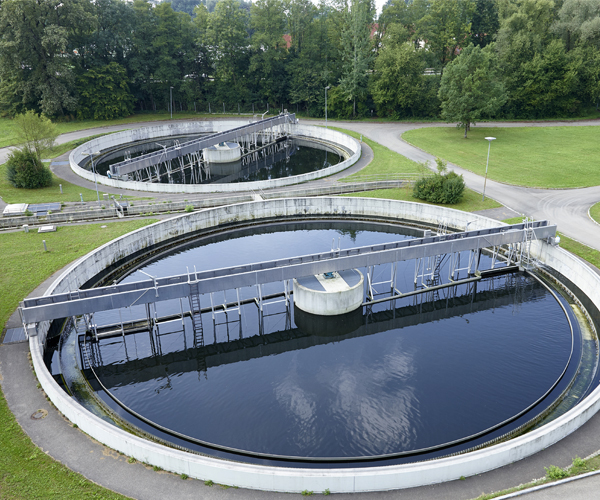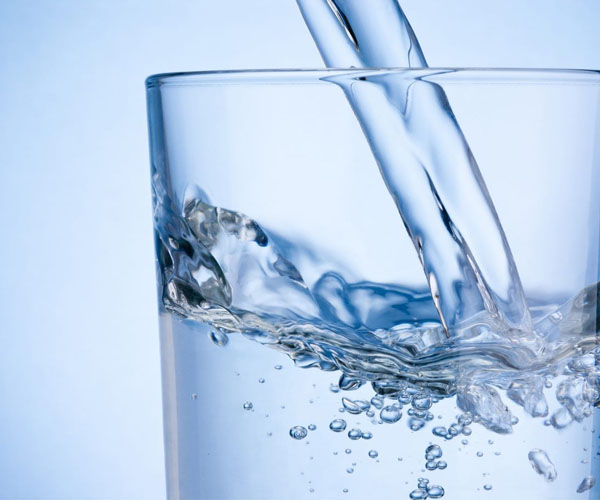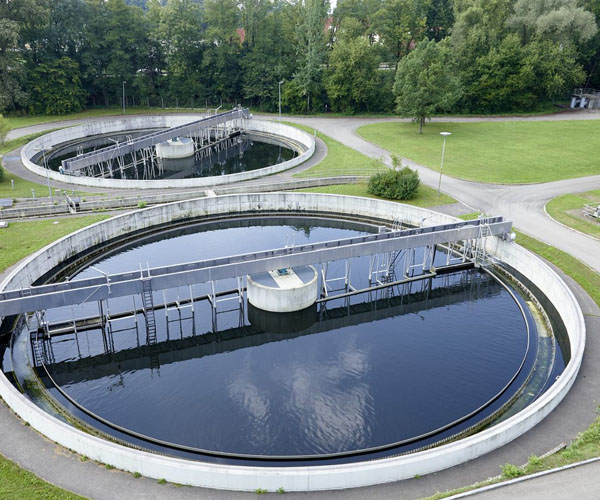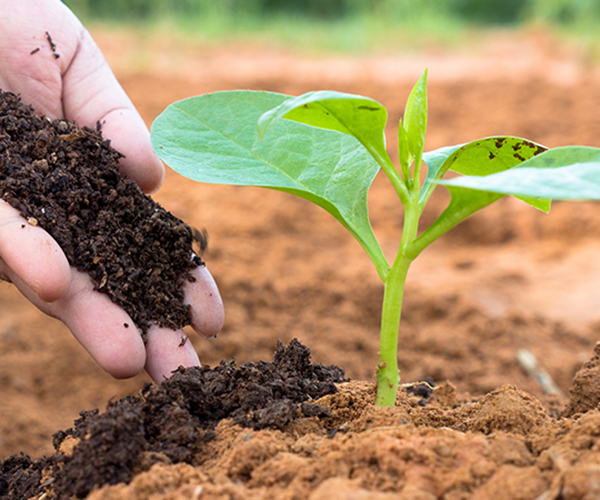Committee Resources
Committee Work and Resources
Wastewater Committee Resources
Chair: Beth Weir, Region of York
Vice-Chair: Brent Burton, Metro Vancouver

Recent Advocacy
CWWA has been advocating for changes to the Ontario Building Code, in hopes that these changes will eventually be reflected in the National Building Code. Requested changes include:
- recommending that every pipe in a drainage system, including an external leader or fixture outlet pipebe capable of withstanding without leakage a water test, air test and final test.
- sanitary laterals should be inspected via CCTV before occupancy
- more presciptive requirements for backfill material to ensure lateral pipes are properly supported
- more prescripitve requirements for private side bedding
- every sanitary drainage system connected to a public sanitary sewer, a public combined sewer or a private sewage disposal system shall be impregnated green. This change would greatly reduce the risk of cross connection.
- requiring gasketed joints (meeting specified standards) on plastic pipes, fittings and solvent cement
- storm drainage systems should be white, reducing the risk of cross connection
- require a visual inspection of private side laterals
- stronger inspection and testing for leakage
National Pollutant Release Inventory
CWWA sits on the NPRI Work Group on Substances and frequently comments on proposed changes to the program when it impacts the sector.
Wastewater Systems Effluent Regulations
CWWA was very active during the development of the Regulation and continues to provide comments and advocacy for members during the implementation period.
Source Control Resources
Flushable Products
Learn more about CWWA’s efforts to develop enforceable standards for flushable products
Water Reuse
Water reuse can be an important tool in water conservation, delay infrastructure capacity develoment and decrease loads to wastewater treatment facilities. It comes with its own challenges in terms of safe use, plumbing, treatment and management. There are an increasing number of resources availalbe to help facilitate water reuse and guide water and wastewater utilities in facilitating implementation.
- ISO TC282 – Water reuse
There are growing needs for the international standardisation from supplier, user and regulator sides. Unless these needs are met by the activities of ISO, a great deal of opportunities for the sustainable development based on water reuse will be lost. There is a rapidly growing market on a global scale for water reuse which inevitably demands the standards applicable world-wide. The website not only has information on the Standards development but is also a great resource on water reuse. - Health Canada Guidelines for Household Reclaimed Water for Use in Toilet and Urinal Flushing
BIOSOLIDS
What are biosolids?
The International Standards Organization (ISO) provides the following definition of biosolids: organic–based materials from industrial or municipal wastewater sludge and their derived products, in the form of solids, semi–solids, semi–liquids (pasty), and liquids which have been treated to meet specific standards, guidelines or requirements including the reduction of pathogens, vector attraction and contaminant criteria (ref:ISO/TC 275/WG 4 “Land application”)
The CWWA also recognizes that the definition of biosolids, as well as the rules and regulations that govern them, vary from state to province, and agency to organization. However, each definition shares a number of common similarities. These similarities include aspects of:
- a by-product of the municipal* wastewater treatment process
- when put through a treatment process and tested, becomes a nutrient- and organically-rich material suitable for reuse especially on land, and
- must meet end use standard regulations for quality with the minimum goal of meeting pathogens, vector attraction and contaminant criteria
The CWWA supports definitions that align with these aspects. Click here for biosolids definition from various organizations.
* – in some jurisdictions, the definition of biosolids encompasses the process of other wastewater not necessarily municipal such as agricultural and some industrial as long as it is tested and meets treatment standards
Selected Definitions of Biosolids by Other Organizations
US EPA (United States Environmental Protection Agency)
Biosolids are a product of the wastewater treatment process. During wastewater treatment the liquids are separated from the solids. Those solids are then treated physically and chemically to produce a semisolid, nutrient-rich product known as biosolids. The terms ‘biosolids’ and ‘sewage sludge’ are often used interchangeably. Biosolids that are to be beneficially used must meet federal and state requirements. Biosolids also may be disposed of by incineration, landfilling, or other forms of surface disposal
BC Ministry of Environment
Biosolids are the stabilized products that are recovered at the end of the wastewater treatment process. Biosolids are rich in nutrients that may be beneficially used to improve soil conditions and provide nutrition for plants. Because of the biological components of biosolids, proper management is important to control the impact on the environment and human health. In B.C., the Organic Matter Recycling Regulation sets requirements for the production of high-quality biosolids and subsequent beneficial use in land application and composting.
OMAFRA (Ontario Ministry of Agriculture, Food and Rural Affairs)
Sewage biosolids are created when municipal wastewater treatment facilities separate municipal wastewater (water from sewage systems, road drains, etc.) into liquid (clean water that can be discharged to a nearby stream or river) and the leftover solids. Solids go through an additional treatment process to reduce the presence of potentially harmful micro-organisms and potential causes of odour. The final treated materials are sewage biosolids. Sewage biosolids that do not exceed the regulatory limits for contaminants, pathogens and odour can be applied to farm land as a non-agricultural source material (NASM). They may also contain trace amounts of other elements such as arsenic, lead and mercury. The land application of sewage biosolids as a NASM and the elements NASM contains is regulated under the Nutrient Management Act, 2002, (NMA) and the Nutrient Management Regulation.
WEF (Water and Environment Foundation)
Biosolids are the nutrient-rich organic materials resulting from the treatment of domestic waste at a wastewater treatment facility. Through biosolids management, solid residue from wastewater treatment is processed to reduce or eliminate pathogens and minimize odors, forming a safe, beneficial agricultural product. Biosolids are carefully monitored and must be used in accordance with regulatory requirements. See, biosolids resources for additional information.
NEBRA
Biosolids are the nutrient-rich organic byproducts resulting from wastewater treatment. Biosolids have been treated and tested and meet strict federal and state or provincial standards for use as fertilizers and soil amendments. Biosolids provide plant nutrients and organic matter to soils. They can also be used to produce renewable energy through digestion and production of methane (“biogas”) or by drying and thermal processing
What is the regulatory landscape for biosolids?
Biosolids is regulated at the Provincial level in Canada. The Federal Government and other organizations provide additional guidance on biosolids
British Columbia
Manitoba
New Brunswick
Federal
https://www.nebiosolids.org/regulations-biosolids-eastern-canada
Canada Councils of Ministers of Environment
What are cities doing with biosolids?
Look what Canadian municipalities are doing with their biosolids by browsing our selected examples of biosolids in Canadian municipalities
British Columbia
Saskatchewan
Manitoba
Ontario
Quebec (in French)
Nova Scotia
Newfoundland
Prince Edward Island
New Brunswick
What are cities doing with biosolids?
Look what Canadian municipalities are doing with their biosolids by browsing our selected examples of biosolids in Canadian municipalities
British Columbia
Saskatchewan
Manitoba
Ontario
Quebec (in French)
Nova Scotia
Newfoundland
Prince Edward Island
New Brunswick
CWWA Biosolids Committee Members
The CWWA Biosolids Committee has representation from across Canada. If you would like to become a member, please email the Committee Chair.
Chair: Darren Keam, WSP
Chair: Kaoru Yajima, Region of Waterloo (ON)
Dean Iamarino, Region of Halton (ON)
Dominika Celmer-Repin, Region of Waterloo (ON)
Don Hoekstra, Ontario Clean Water Agency (ret’d) (ON)
Peter Kickham, Capital Region District (BC)
Banu Ormeci, Carleton University (ON)
Johnny Guo, Associated Engineering Ltd. (AB)
Faraz Shaikh, Epcor (AB)
Jonathan Lee, Actizyme (AB)
Luxmy Begum Shaila (ON)
Myron Flexhaug, City of Calgary (AB)
Richard MacEwen, City of Charlottetown (PE)
Robert Boswick, Government of Manitoba (MB)
Roland Richard, Government of New Brunswick (NB)
Sarah Mason-Renton, Lystek International (ON)
Sophie St-Louis, Viridis Environnent (QC)
Tania Gheseger, Metro Vancouver (BC)
Shirley Anne Smyth, ECCC (ON)
Drinking Water
Chair: Anna Comerton, Associated Engineering

Recent Advocacy
Drinking Water Guidelines – Comments
Guidelines for Canadian drinking water quality: Iron
Guidance on Sampling and Mitigation Measures for Controlling Corrosion
Links
Recent Projects
-
PFAS/PFOS IN DRINKING WATER(PER- AND POLYFLUOROALKYLATED SUBSTANCES) – Fact Sheet (being revised, watch for an updated version in 2024)
- SAFELY RE-OPENING BUILDINGS General Guidance for Water Utilities
- SAFELY RE-OPENING BUILDINGS a FACT SHEET for Building Owners/Operators also available editable version of this fact sheet
- POUR UNE RÉOUVERTURE SÉCURITAIRE DES IMMEUBLES: Document d’orientation générale pour les services d’eau
- POUR UNE RÉOUVERTURE SÉCURITAIRE DES IMMEUBLES” Fiche d’information pour les propriétaires et exploitants d’immeubles également

CWWA is a non-profit national body representing the common interests of Canada’s public sector municipal water and wastewater services and their private sector suppliers and partners.
Head Office
CWWA, Unit 11, 1010 Polytek Street, Ottawa, ON K1J 9H9 Canada
(613) 747-0524
admin@cwwa.ca

